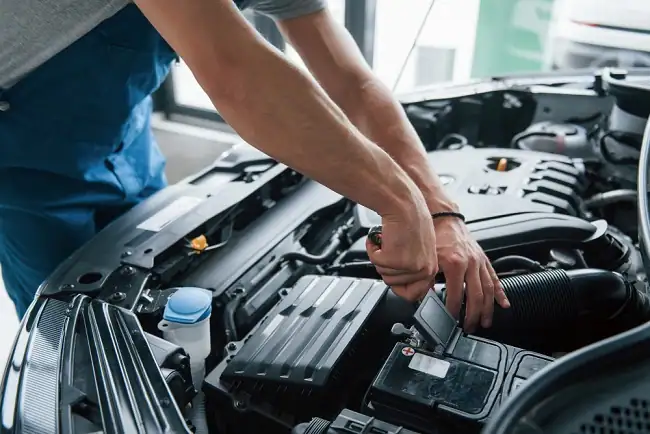The car’s battery plays a crucial role in optimizing your car’s performance. Nothing is worse than getting stuck at your home or workplace just because your car won’t start because of a dead battery.
A good-quality battery is designed to last for at least 4 to 5 years. To ensure you buy a high-quality battery, you should always visit a reputed auto repair shop in USA. However, if you have recently replaced your battery, but it has stopped working, then you need to change your driving habits.

If you want to maximize your battery life, here we will discuss some of the professional tips that can help you extend your battery life and save you money in the long run.
1) Don’t Drive Short Distances Very Often
The current from the alternator charges the car’s battery. It runs on the power of the engine. When you take short trips in your vehicle, the alternator cannot fully charge the battery.
When you turn off the engine and start the car again, it will use power from the battery. If the battery is not charged efficiently and you turn off and start the engine repeatedly, then soon the battery will lose its power.
Car batteries are usually charged at longer distances. If your battery is drained, then you need to keep the engine for more than five hours to recharge your battery fully.
2) Keep Battery in Neutral Temperature
Batteries can usually withstand most temperatures, but if placed in extremely hot or cold environments, battery fluid can evaporate. Due to this, the battery lifespan can be decreased.
If the battery is placed in colder temperatures, then it will cause the battery to self-discharge. The electrolytes can freeze, which will resist the current from the alternator; hence, the battery won’t be charged.
3) Clean Your Car Battery
Due to moisture and dust, your battery’s terminal can corrode. If you see a white power around the nodes or clamps of your battery, then it’s a sign that your battery has started to corrode.
You can avoid this by keeping your battery clean. To ensure your battery is clean, wash it with baking soda by using a nonmetallic brush.
4) Invest in Maintenance-Free Battery
The old batteries need to be refilled with battery fluid every now and then because it can evaporate easily. The maintenance-free batteries are designed to maintain the battery fluid, so you don’t have to worry about topping off the electrolyte again and again.
5) Routine Battery Testing
If you test your battery regularly, then it can help you identify any problems before they become severe. To test the battery, you can use a multimeter. When a battery is fully charged, the voltage should be around 12.6 volts; if the voltage is low, then there might be a problem with the battery or the alternator.
6) Limit the Power Usage When Idle
Using an air conditioner or other electronic equipment when the car is idling puts more stress on the battery. If you wish to maximize your battery health, avoid using accessories that run on current.
7) Invest in a Battery Charger
A battery charger is used to fully recharge a dead or weak battery. It provides energy to your car’s battery by converting AC into DC.
The battery charger is handy when your battery is fully drained, and you must recharge it before hitting the road. Alternators can’t charge the battery during short trips, so you must use a charger to ensure your battery is in good health.
8) Keep Your Battery Tightly Fastened
Harsh vibrations can greatly reduce the life of your car battery. To ensure it works perfectly fine, you need to use an approved battery clamp to properly hold the battery down even when going on a rough road.
When the battery is loose, excessive vibrations can damage the internal components of the battery and create a short circuit.
9) Minimize Heat Exposure
Just like intense cold weather, hot weather can also kill the car batteries. Due to extreme heat, the fluid inside batteries evaporates at a much higher rate, affecting the cells inside the battery.
To minimize heat exposure, always park your car inside the garage or isolate the engine bay so the battery is subjected to less heat.
10) Don’t Leave the Car Parked for Long Periods
The batteries must be fully charged to prevent damage; the problem is that they lose some of their power after some time, even if not used.
So, to prevent damage to the battery, you should not leave your car parked for long periods. Even if you are not driving the vehicle, you should start the engine after a few days so the alternator can charge the battery.








It’s so crazy that my brother’s car has taken a sudden liking to the “silent treatment.” It just won’t start. After a failed attempt to jumpstart it, he’s resigned to the fact that it’s time for a car battery replacement. Now, the search for a new battery has become a mission to bring back the hum of a running engine. I need to remind him that car batteries are often charged over longer distances, so properly recharge your battery if it is empty, you must run the engine for longer than five hours.